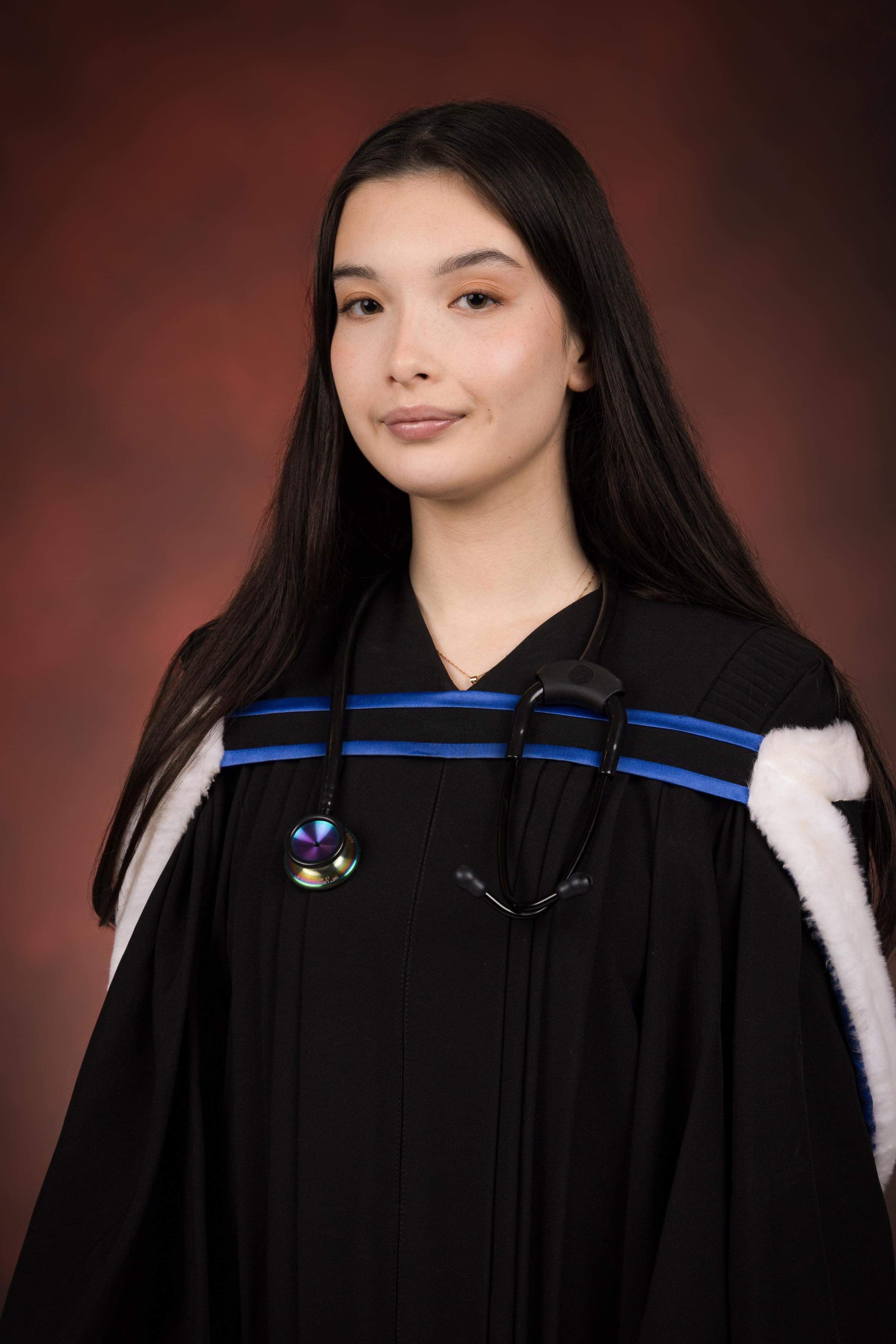Illuminating Shadows
By Sheena Doyle
I originally created this shadow art installation as part of my Master of Science in Nursing coursework, focusing on McGill’s Strengths-Based Nursing and Healthcare (SBNH) model, which emphasizes a holistic approach that builds upon the strengths of individuals, families, and communities. However, SBNH is not a new framework. Its core principles, including relationality, holism, and strength-based approaches, have long been foundational to Indigenous health practices and ways of knowing. In recognizing this, I am reframing my art as a critical reflection on nursing colonialism, aiming to highlight Indigenous knowledge systems and health.
As a labor and delivery nurse, my shadow art serves to critique the limitations of the biomedical model that dominates our healthcare system. Using a perpendicular light source and an arrangement of hospital items (IVs, needles, medications, newborn hats, etc.), I aim to reveal the families left in the shadows. This family, represented by the literal shadow of parents holding their newborn, symbolizes the relational foundation of healthcare, often lost in routine medical care driven by efficiency and outcomes. But when we shine the light deeper, uncovering systemic racism, we expose more than just unseen families, we reveal those who have been deliberately pushed into the shadows. We uncover Indigenous families, torn apart by colonial forces, who continue to face profound health inequities. We also see in the shadows what has been deliberately hidden: including “nursing’s complicity in five colonial harms: Indian hospitals, Indian Residential Schools, child apprehension, Missing and Murdered Indigenous Women and Girls (MMIWG), and forced sterilization” and the erasure of Indigenous birthing practices (Symenuk et al., 2020, p.84).
The reuse of medical materials in this piece speaks to sustainability, but it also forces us to question the over-medicalization of birth. Obstetrics, as practiced within Western biomedicine, often positions Indigenous birthing knowledge in the margins, despite its deep wisdom and holistic understanding of family and community. The forced removal of birth from Indigenous lands and into hospital settings under colonial authority is a history that continues to reverberate in contemporary healthcare policies (Basile et al., 2023). Families in the shadows are not just symbolic; they are real, representing those whose experiences have been ignored, those who have been subjected to coercive colonial policies, and those who continue to resist and reclaim their autonomy. By interpreting this piece through a decolonial lens, I hope to challenge viewers to recognize how deeply colonial legacies are embedded in nursing and healthcare. The interplay of light and shadow in this work serves as a reminder that what is illuminated depends on where we choose to shine the light.
To truly follow McGill’s Strengths-Based Nursing, we must not only recognize the unseen strengths of families but also confront the histories and structures that have kept them in the shadows for too long. Nursing must uncover its truths, the colonial narratives that shape our profession, and critically examine how Eurocentric frameworks continue to dominate practice, education, and policy. Remembering the families in the shadows means seeing the underrepresented and oppressed, acknowledging nursing’s colonial past, and confronting the pervasive medical colonialism that continues to shape healthcare today. Ultimately, “nurses and nursing organizations, comprised of predominantly white settlers, need to do the work of bringing the truth of anti-Indigenous racism in the profession moving forward. The burden of responsibility is not on Indigenous Peoples to teach Canadian nurses and nursing how to engage with the truth” (Symenuk et al., 2020, p.91).
References
Basile, S., Comat, I., & Cornellier, F. (2023). Access to midwifery services for Indigenous communities in Quebec. https://doi.org/10.13140/RG.2.2.24253.27362
Symenuk, P. M., Tisdale, D., Bourque Bearskin, D. H., & Munro, T. (2020). In search of the truth: Uncovering nursing’s involvement in colonial harms and Assimilative Policies Five Years Post Truth and Reconciliation Commission. Witness: The Canadian Journal of Critical Nursing Discourse, 2(1), 84–96. https://doi.org/10.25071/2291-5796.51
Sheena Doyle
is a first-year Master of Science in Nursing student at McGill University with a strong interest in decolonizing healthcare, family nursing, and reproductive justice. In addition to her work in nursing, she is passionate about the arts as a medium for advocacy and storytelling. Her creative projects often explore the intersection of policy, practice, and social justice


